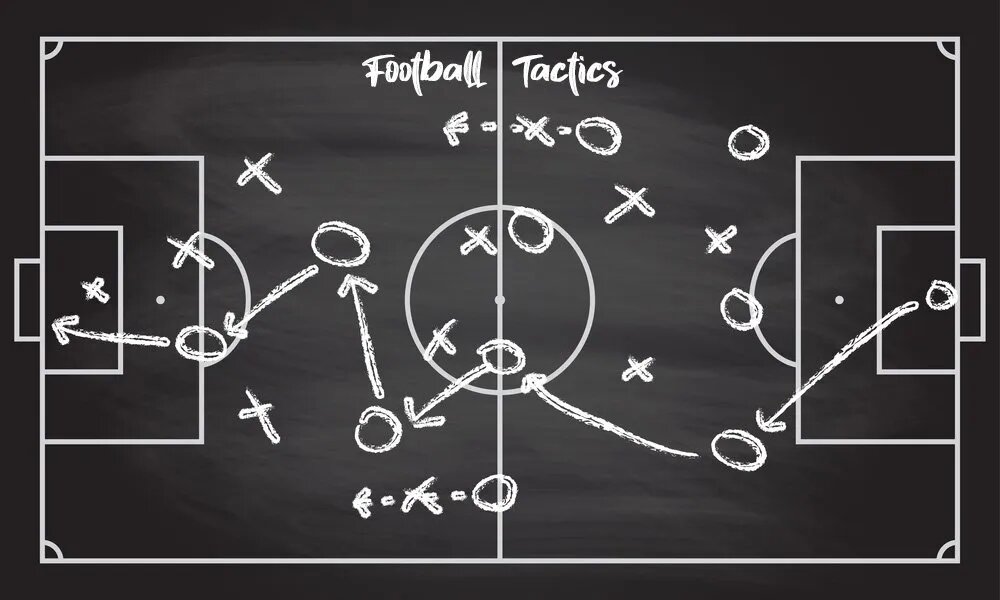“Football Coaching Strategies in Italy: A Deep Dive into Tactics, Philosophy, and Evolution
Related Articles Football Coaching Strategies in Italy: A Deep Dive into Tactics, Philosophy, and Evolution
Football Coaching Strategies in Italy: A Deep Dive into Tactics, Philosophy, and Evolution

Italy, a nation synonymous with tactical brilliance and defensive solidity, has long been a powerhouse in the world of football. The Italian approach to coaching is steeped in history, tradition, and a relentless pursuit of perfection. This article delves into the intricacies of football coaching strategies in Italy, exploring the historical context, key tactical philosophies, the influence of prominent coaches, and the ongoing evolution of the game.
Historical Context: The Birth of Catenaccio and Beyond
The roots of Italian football coaching are deeply intertwined with the development of Catenaccio (meaning "door-bolt" in Italian), a highly defensive tactical system that emerged in the 1960s. Credited to coaches like Nereo Rocco (AC Milan) and Helenio Herrera (Inter Milan), Catenaccio emphasized a tight, well-organized defense, often employing a sweeper (libero) to provide an extra layer of protection behind the defensive line.
Catenaccio was not merely a defensive strategy; it was a philosophy that prioritized pragmatism and efficiency. The goal was to nullify the opposition’s attacking threats and then exploit any opportunities to score on the counter-attack. This approach, while often criticized for being overly negative, proved remarkably successful, leading to numerous domestic and European titles for Italian clubs.
However, Catenaccio was not without its limitations. It could be perceived as boring and stifling to watch, and it often struggled against teams that were equally well-organized defensively. As football evolved, Italian coaches began to explore new tactical approaches while still retaining the emphasis on defensive discipline.
Key Tactical Philosophies in Italian Football Coaching
Several key tactical philosophies have shaped Italian football coaching over the years:
- Defensive Solidity: A strong defense remains a cornerstone of Italian football. Italian coaches prioritize organization, discipline, and communication in their defensive setups. They emphasize the importance of zonal marking, pressing triggers, and the ability to close down space effectively.
- Tactical Flexibility: While Catenaccio may have been rigid in its approach, modern Italian coaches are known for their tactical flexibility. They are adept at adapting their formations and strategies to suit the strengths and weaknesses of their own team, as well as the characteristics of their opponents.
- Midfield Control: The midfield is often seen as the engine room of the team in Italian football. Coaches place a strong emphasis on midfield organization, with players expected to be both technically proficient and tactically aware. The ability to control possession, dictate the tempo of the game, and win midfield battles is crucial.
- Counter-Attacking Prowess: While not always the primary focus, the ability to launch quick and effective counter-attacks remains an important aspect of Italian football. Coaches emphasize the importance of quick transitions, accurate passing, and clinical finishing.
- Set-Piece Mastery: Set-pieces are often seen as a crucial opportunity to score goals in Italian football. Coaches dedicate significant time to practicing set-piece routines, both attacking and defensive, to maximize their effectiveness.
- Mental Fortitude: Italian coaches place a strong emphasis on mental strength and resilience. They believe that players must be able to handle pressure, overcome adversity, and maintain their focus throughout the game.

The Influence of Prominent Italian Coaches
Italian football coaching has been shaped by a long line of influential figures, each of whom has contributed to the evolution of the game. Some of the most prominent include:
- Nereo Rocco: The pioneer of Catenaccio, Rocco led AC Milan to two European Cups and two Serie A titles.
- Helenio Herrera: Another key figure in the development of Catenaccio, Herrera led Inter Milan to two European Cups and three Serie A titles.
- Arrigo Sacchi: A revolutionary coach who transformed AC Milan in the late 1980s and early 1990s, Sacchi emphasized high-pressing, zonal marking, and attacking football.
- Marcello Lippi: A master tactician who led Italy to victory in the 2006 World Cup, Lippi was known for his ability to build strong team spirit and adapt his tactics to suit the opposition.
- Carlo Ancelotti: One of the most successful coaches in modern football, Ancelotti has won league titles in Italy, England, France, Spain, and Germany. He is known for his tactical flexibility, man-management skills, and ability to get the best out of his players.
- Antonio Conte: A highly demanding and tactically astute coach, Conte has won league titles with Juventus, Chelsea, and Inter Milan. He is known for his emphasis on hard work, discipline, and a well-organized defensive structure.
These coaches, among others, have left an indelible mark on Italian football coaching, shaping the tactical landscape and inspiring future generations of coaches.
The Ongoing Evolution of Italian Football Coaching
Italian football coaching is not static; it is constantly evolving in response to changes in the game. In recent years, there has been a growing emphasis on:
- Proactive Football: While defensive solidity remains important, many Italian coaches are now prioritizing a more proactive approach, seeking to control possession, dictate the tempo of the game, and create more attacking opportunities.
- High-Pressing: Inspired by coaches like Jürgen Klopp and Pep Guardiola, some Italian coaches are now incorporating high-pressing tactics into their game plans, seeking to win the ball back high up the pitch and launch quick attacks.
- Positional Play: Positional play, a tactical philosophy that emphasizes the importance of maintaining a structured formation and creating passing lanes, is also gaining popularity in Italy.
- Individual Development: There is a growing recognition of the importance of individual player development. Coaches are placing more emphasis on improving the technical skills, tactical awareness, and physical conditioning of their players.
- Data Analysis: The use of data analysis is becoming increasingly prevalent in Italian football. Coaches are using data to track player performance, identify areas for improvement, and gain insights into the strengths and weaknesses of their opponents.
Current Trends and Future Directions
Looking ahead, several trends are likely to shape the future of Italian football coaching:
- Integration of Technology: The use of technology, such as GPS tracking, video analysis, and virtual reality, will become even more widespread, allowing coaches to gain a deeper understanding of player performance and develop more effective training methods.
- Emphasis on Youth Development: Italian clubs are increasingly investing in youth academies to develop homegrown talent. Coaches will need to be skilled at identifying and nurturing young players, providing them with the technical, tactical, and mental skills they need to succeed at the highest level.
- Collaboration and Knowledge Sharing: Coaches will increasingly collaborate and share knowledge with each other, both within Italy and internationally. This will help to foster innovation and ensure that Italian football coaching remains at the forefront of the game.
- Adapting to Global Trends: Italian coaches will need to be aware of global trends in football and adapt their strategies accordingly. This includes incorporating new tactical approaches, embracing new technologies, and understanding the changing demands of the modern game.
Conclusion
Football coaching in Italy is a complex and multifaceted discipline, shaped by a rich history, a strong tactical tradition, and a relentless pursuit of excellence. While Catenaccio may have been the defining tactical system of the past, modern Italian coaches are embracing a more proactive and flexible approach, incorporating elements of high-pressing, positional play, and individual development. By continuing to innovate, adapt, and collaborate, Italian football coaching is well-positioned to remain a force to be reckoned with on the world stage. The blend of tactical acumen, defensive prowess, and a growing emphasis on attacking football ensures that Italy will continue to produce world-class coaches and players for generations to come.

